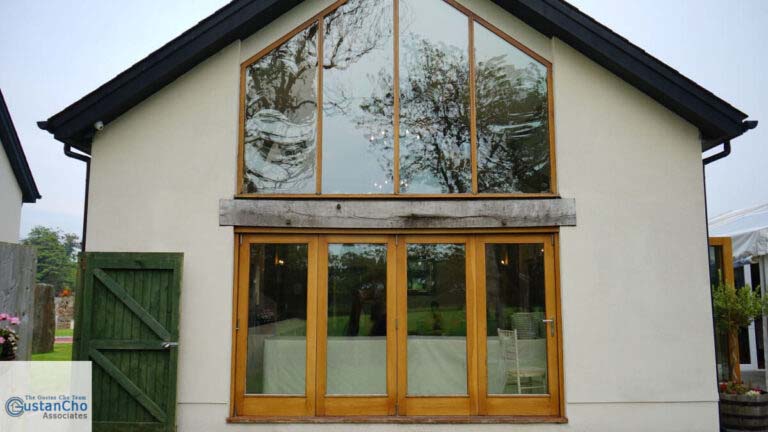Your Checklist To Qualify For A Mortgage
This ARTICLE On Your Checklist To Qualify For A Mortgage To Start Mortgage Was PUBLISHED On October 8th, 2019
Congratulations, you’ve decided to buy a home! Buying a home is an intimidating process for many people for a variety of reasons, like figuring out your mortgage options. Mortgage requirements come with a costly learning curve.
Doing your homework is essential to increasing your chances of qualifying for a mortgage and avoiding costly mistakes, like thousands of dollars in interest fees. A checklist comes in handy to ensure that you’re doing everything possible to help qualify.
In this article, we will cover and discuss Your Checklist To Qualify For A Mortgage.
Your Checklist To Qualify For A Mortgage Prepare for a Down Payment
Although it’s possible in unique scenarios to buy a home without a down payment, it’s a good idea to have money saved for one. The down payment often covers a percentage of the total purchase price. This allows the rest of the mortgage to be paid in monthly installments.
Although you generally choose how large of a down payment to make, it can be difficult to determine the right amount for your situation. Paying a higher down payment can result in lower interest rates and monthly payments. Also, it might help you dodge mortgage insurance and other fees.
Your Checklist To Qualify For A Mortgage Calculate Your Debt-to-Income Ratio
Your debt-to-income ratio is the relation between your monthly debt payments and your income. A 45% debt-to-income ratio is usually the highest ratio a borrower can have and still get a qualified mortgage.
To figure yours out, add any monthly payments like credit cards, loans, and housing and divide that by your before-tax gross monthly income. Don’t include living expenses like utilities or food.
After calculating, if you find your ratio is too high, pay down any outstanding loans and credit cards you may have to get below the required limits.
Build Your Credit Scores
Credit scores are one of the largest factors lenders use to determine your eligibility for a home loan. Credit scores are numbers that measure how risky you are as a borrower of money. These scores are calculated on your past behavior with loans, credit cards, and other financial products.
Having credit scores of around 720 or higher earns you a more favorable mortgage rate. If your scores fall below that number you might still get approved, but you’ll be paying more monthly. Low credit scores are major factors in a mortgage application denial.
What makes up a credit score?
You have many credit scores, not just one. Although each score may differ slightly, the main categories that do affect your scores are:
- Your payment history
- How much you owe on your accounts
- The age of that credit file
- Account variety
- Amount of applications for new credit
Whereas, things that don’t affect your credit scores are:
- Your income (although you’re usually asked this when applying)
- Where you reside
- Age, race, gender, religion, marital status, or national origin
- Child or family support obligations
- Whether you’re using credit counseling services
Building Your Credit Scores
If you’re at a place where you think your credit scores are too low for a favorable mortgage, how can you improve them?
Treat any credit accounts like credit cards, auto or student loans accounts with discipline.
With credit cards, make sure to pay off your accounts in full and on time every month. Treat credit cards as if they’re connected to your checking account and be careful not to spend more than you can afford. Also remember to take advantage of your card’s benefits. Credit cards provide extra rewards and benefits for cardmembers in specific categories. For example, most travel credit cards offer you rewards on every purchase in the form of points or miles.
Although auto loans and student loan payments might be more difficult to pay in full, treat them as serious debts as they’re still accruing interest. Pay as much monthly as possible on these large accounts to reduce any outstanding debt.
Your credit scores will grow as you develop and execute these good credit habits.
Have a Record of Employment
Believe it or not, your job history is an important factor to show mortgage providers your ability to repay the loan.
More favorable consideration is given to a person who has been working at the same job for two or more years rather than someone who hops from job to job. If you’re self-employed or work for commission, your lender may ask to see bank statements to affirm any past income history.
Conclusion On Your Checklist To Qualify For A Mortgage
Before jumping into a mortgage offer right away, ensure you are in a position for an affordable rate from a provider.
Saving for a downpayment helps reduce overall costs of a mortgage when buying a home. Building your credit and reducing any existing debts help secure more favorable interest rates on mortgages. Also, these strategies create healthy financial habits which help you while paying off your mortgage.
After you complete your checklist, shop around for a mortgage offer that works best for your unique financial situation. These steps can possibly save you thousands of dollars in interest rate fees over time!





